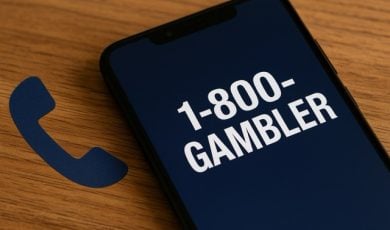As online gambling has evolved over the years, skill games have remained one area that has stayed in the brick-and-mortar arena, but they could make a big splash in online gambling soon.
The evolution of online gaming includes the Unlawful Internet Gambling Enforcement Act of 2006, which targeted offshore operators, and the establishment of the first regulated iGaming industries in Delaware and New Jersey in 2013.
However, progress on the online casino front has been slow nationwide, with only five more states having legalized them since then. Sweepstakes casinos began to fill that void this decade, but their prominence has led to a handful of states passing legislation to ban their operations.
Skill games present another potential avenue to fill the void for states without online casinos. Thus, the question becomes, how long until operators bridge the gap between physical and digital to seize that opportunity?
Skill Games Are Black, White and Gray All at Once
Many skill games have the appearance of slot machines. They function similarly, too, for the most part.
Skill games have one significant difference, though. Whereas slot machines rely entirely on chance, skill games require players to complete tasks to determine a winning outcome, such as completing a puzzle within a given timeframe or performing a simple memory-based task.
Some states, including Georgia, Illinois, Pennsylvania, Texas, and Wyoming, have ruled to allow skill games to operate legally. Maryland also allows skill games but does not allow cash payouts and limits the wholesale value of prizes to $30 per play.
Others, such as Florida, Kentucky, North Carolina and Virginia, have outlawed the games, claiming they are effectively unregulated slot machines. Most states have no laws specific to skill games, creating a gray area between them and other unlicensed gambling operations.
Even in states that permit skill games, the machines often lack regulatory oversight. Only Georgia has a regulated skill game industry, and Pennsylvania has explored skill games legislation with Senator Gene Yaw.
Bars, restaurants and truck stops often offer these games as another revenue source and share the revenue with the machine manufacturer. In many cases, the unregulated nature of skill games translates to tax-free revenue that can help small businesses boost their bottom lines.
A Different Set of Circumstances
Many states expressly prohibit online casino gambling, as evidenced by the fact that only seven states have legalized iGaming in 12 years. Their illegal status kept most Americans on the sidelines or turning to risky offshore operators before sweepstakes casinos entered the picture, offering a workaround that had a similar gray-area function to skill games.
That gray area has led to sweepstakes casinos coming under fire in multiple states. The trend will continue in the coming years, leaving online operators in need of finding the next angle for market access.
Pros and Cons
Given their similarity to online slots, the technology already exists to develop online skill games. They also have a differentiating feature, just like sweepstakes casinos do with their dual-currency models.
Skill games won’t fly under the radar in the same way sweepstakes casinos did, though. States that have taken an active approach to shutting down unregulated online casino and sweepstakes operators will do the same to online skill game operators.
Other states with legal skill games might also take action against online operators, fearing they will cannibalize the industry and harm small businesses. Pennsylvania skill game operators, such as Pace-O-Matic, have constantly come under fire from state regulators before the state Supreme Court voted in favor of skill games.
Lastly, states can argue that the “skill” component plays a lesser role online, as players may develop macros or use bots to perform the tasks required for winning outcomes.
The Window Will Close for Skill Games Quickly, If It Ever Opens
If skill game operators want to explore offering online gambling, they must do so as quickly as possible.
Skill games can offer a new option for players in states without legal online casinos, allowing them to do so while states focus on other gambling issues, such as discussing sweepstakes casinos and restructuring sports betting taxes.
The longer they wait, the worse the opportunity becomes. The spotlight would quickly shine on skill games once the air clears, and a delayed rollout would only reduce the potential revenue.
Additionally, many states will either legalize sweepstakes casinos, lag in banning them, or remain indifferent. Skill games would have to compete with those sweepstakes operators and their established, often loyal customer bases.
All the while, the regulated iGaming industry will continue to expand, slowly but surely. Six states introduced online casino bills in 2025. For example, we recently heard about a pair of bills to legalize online casinos in Massachusetts. And while none have yet passed, more states will likely follow suit as they find the accompanying tax revenue worth legalizing them.








